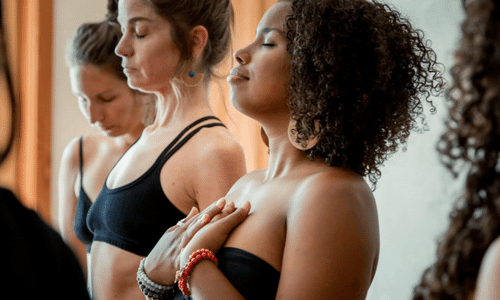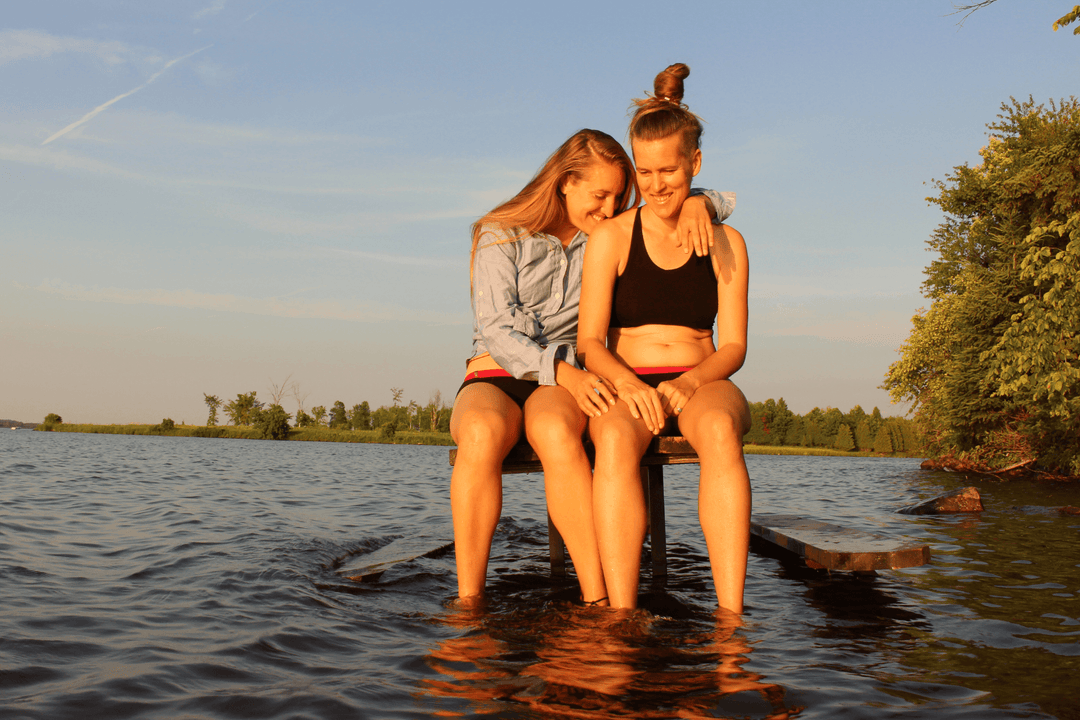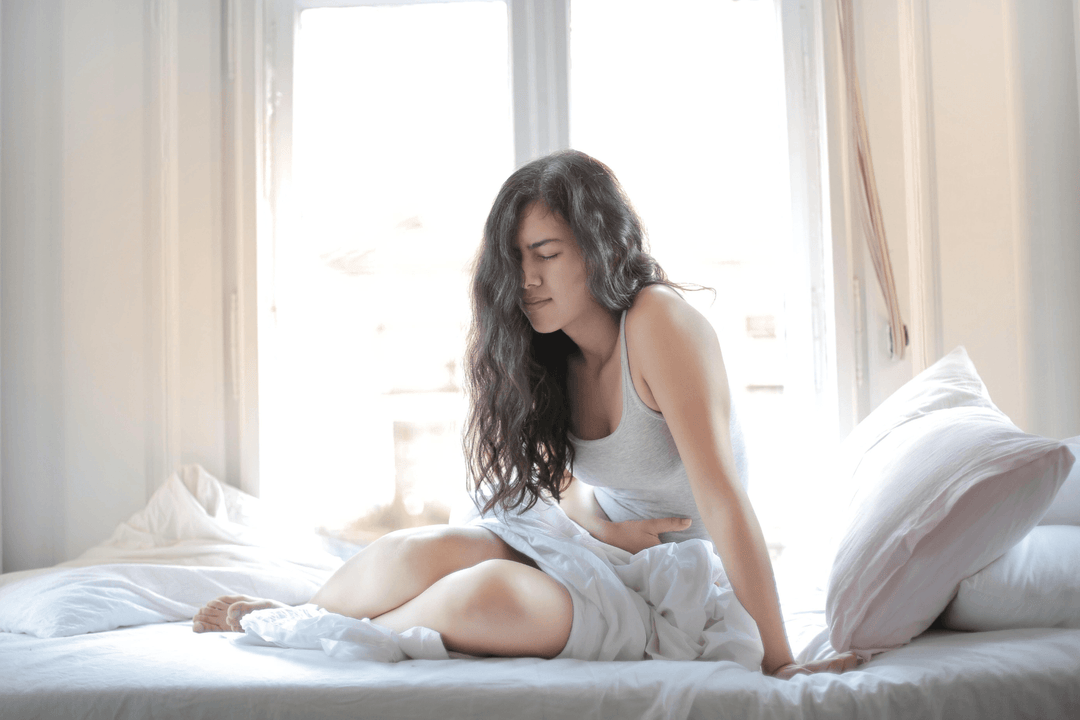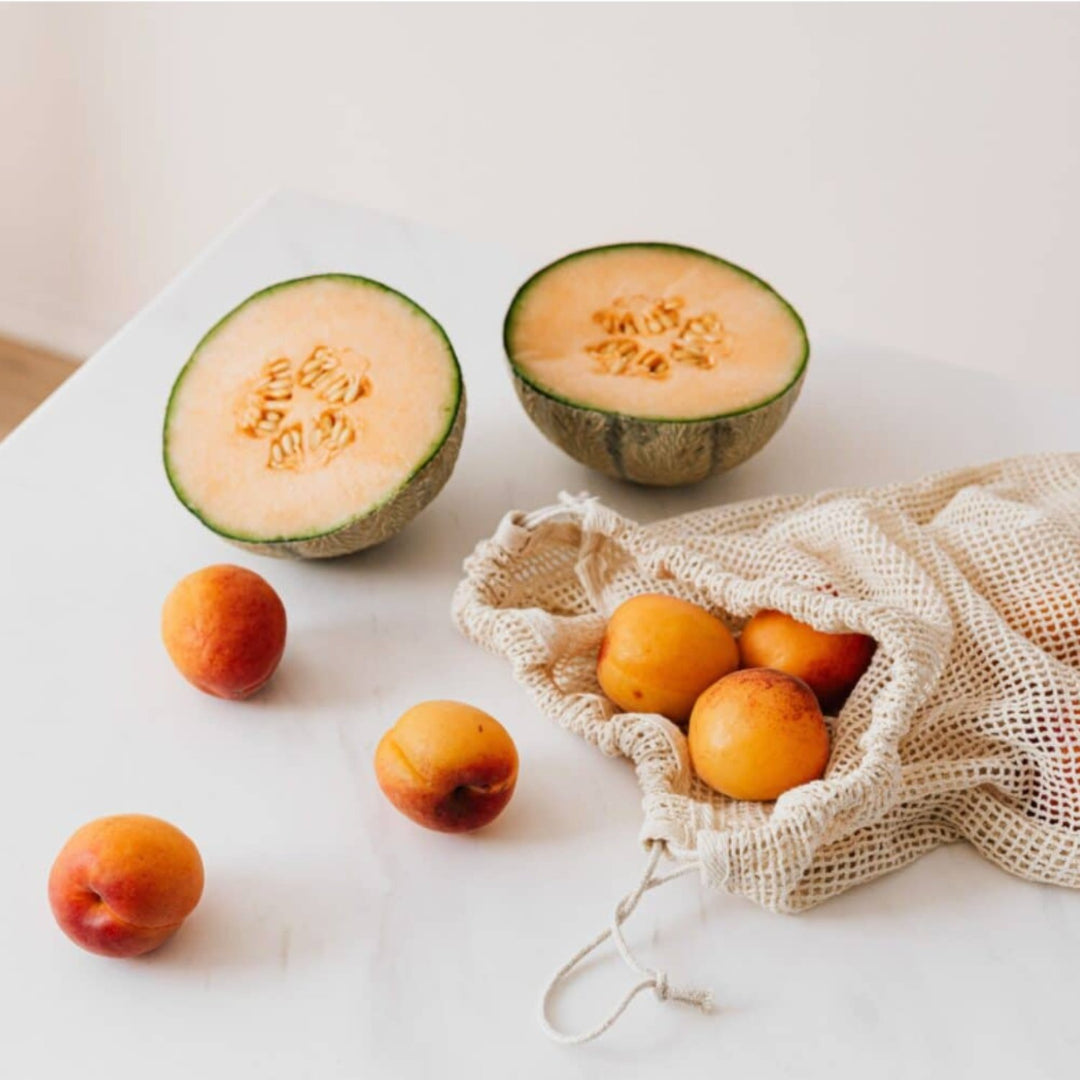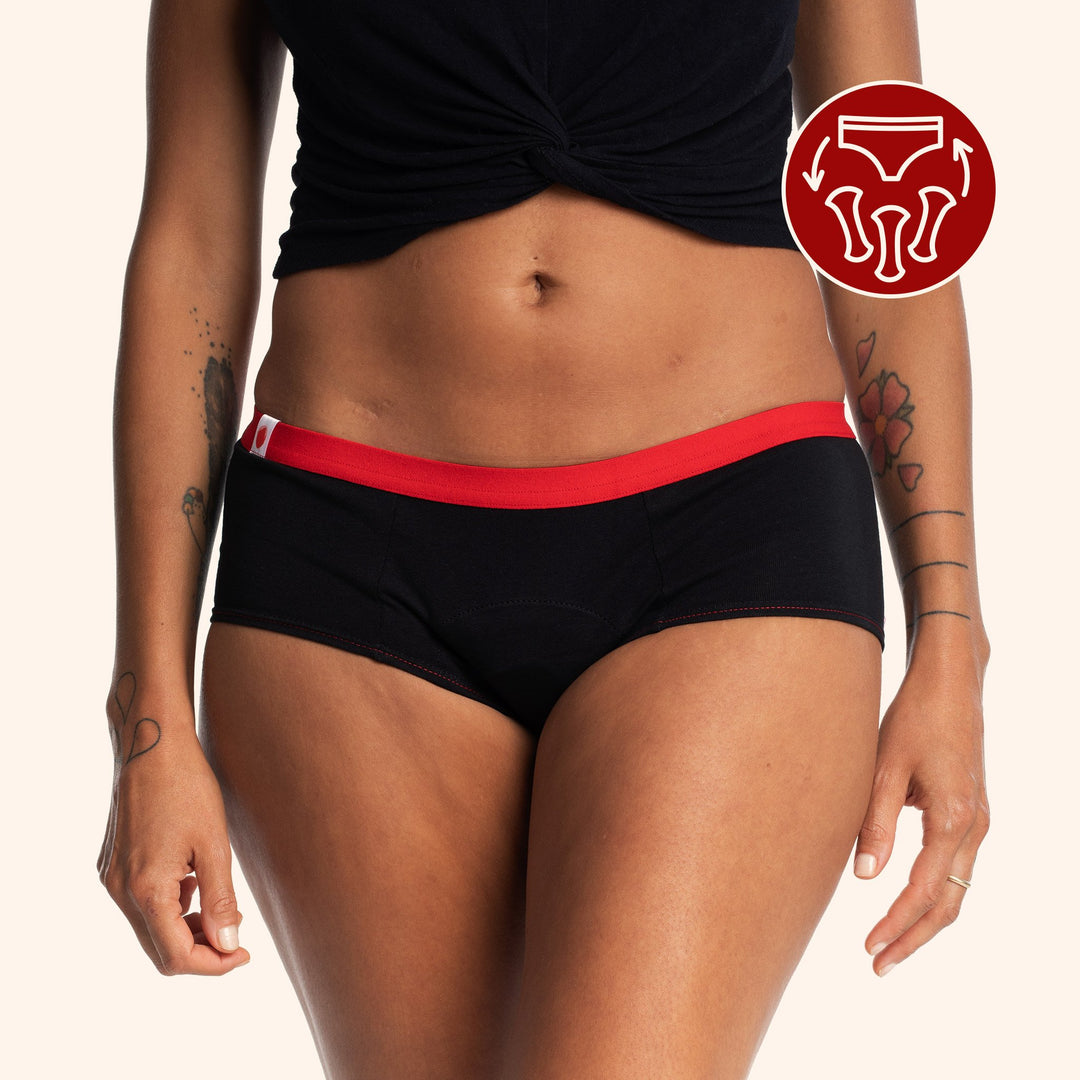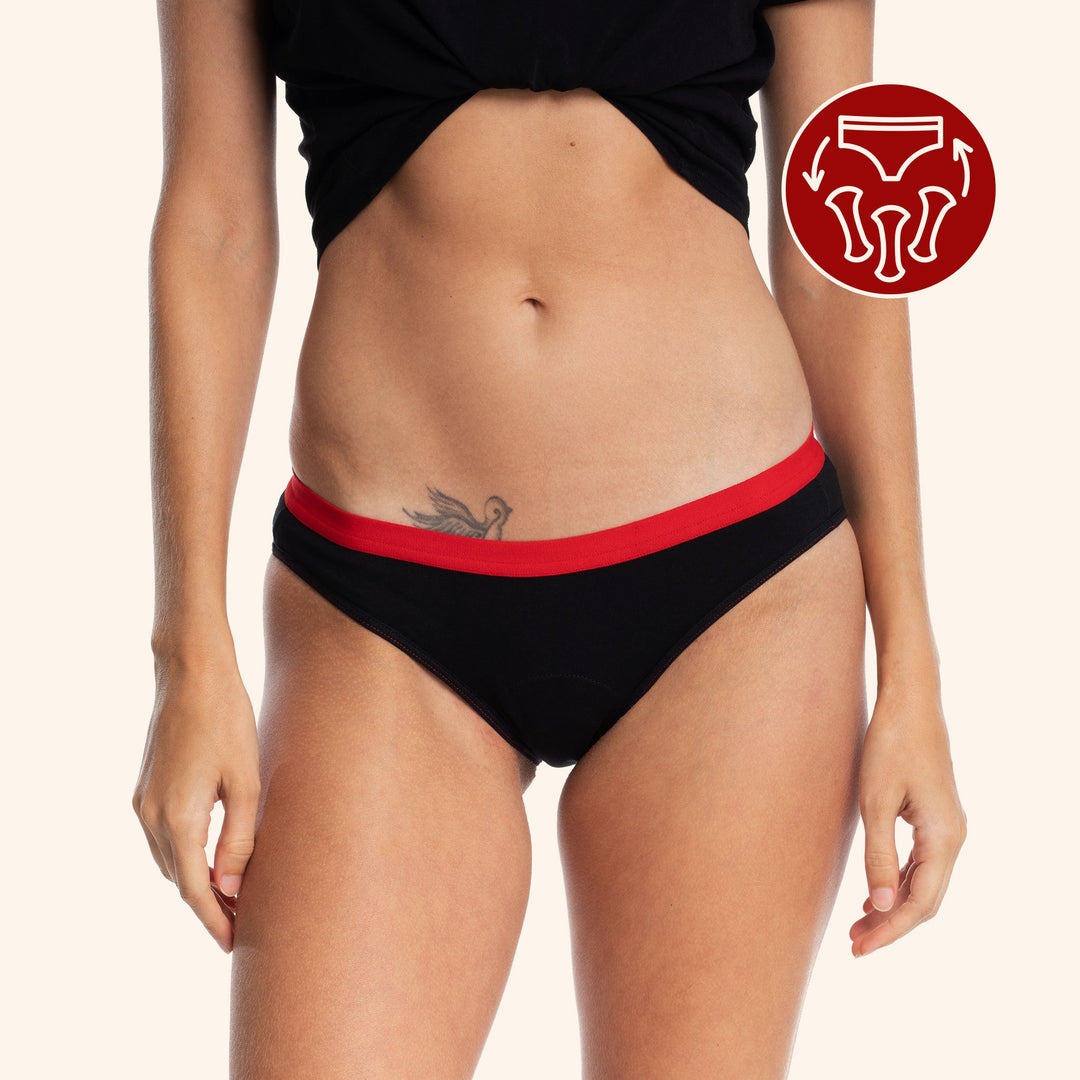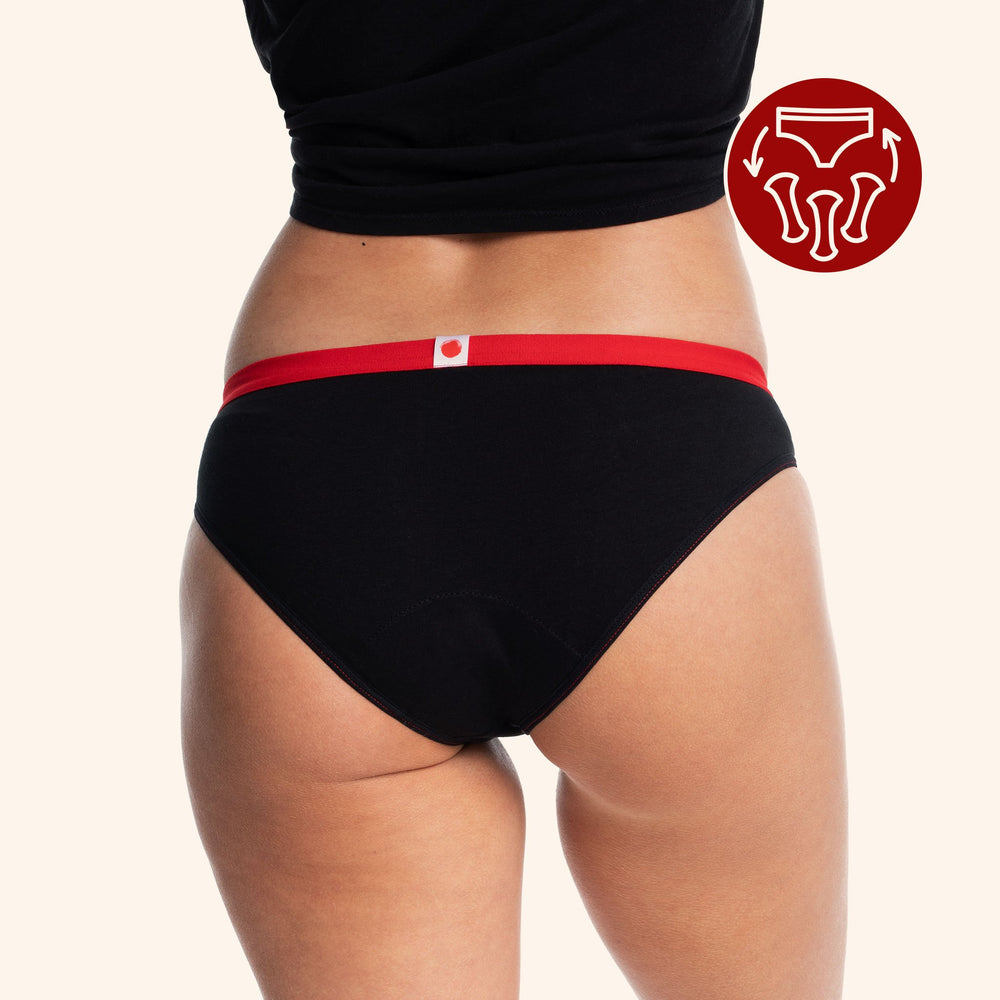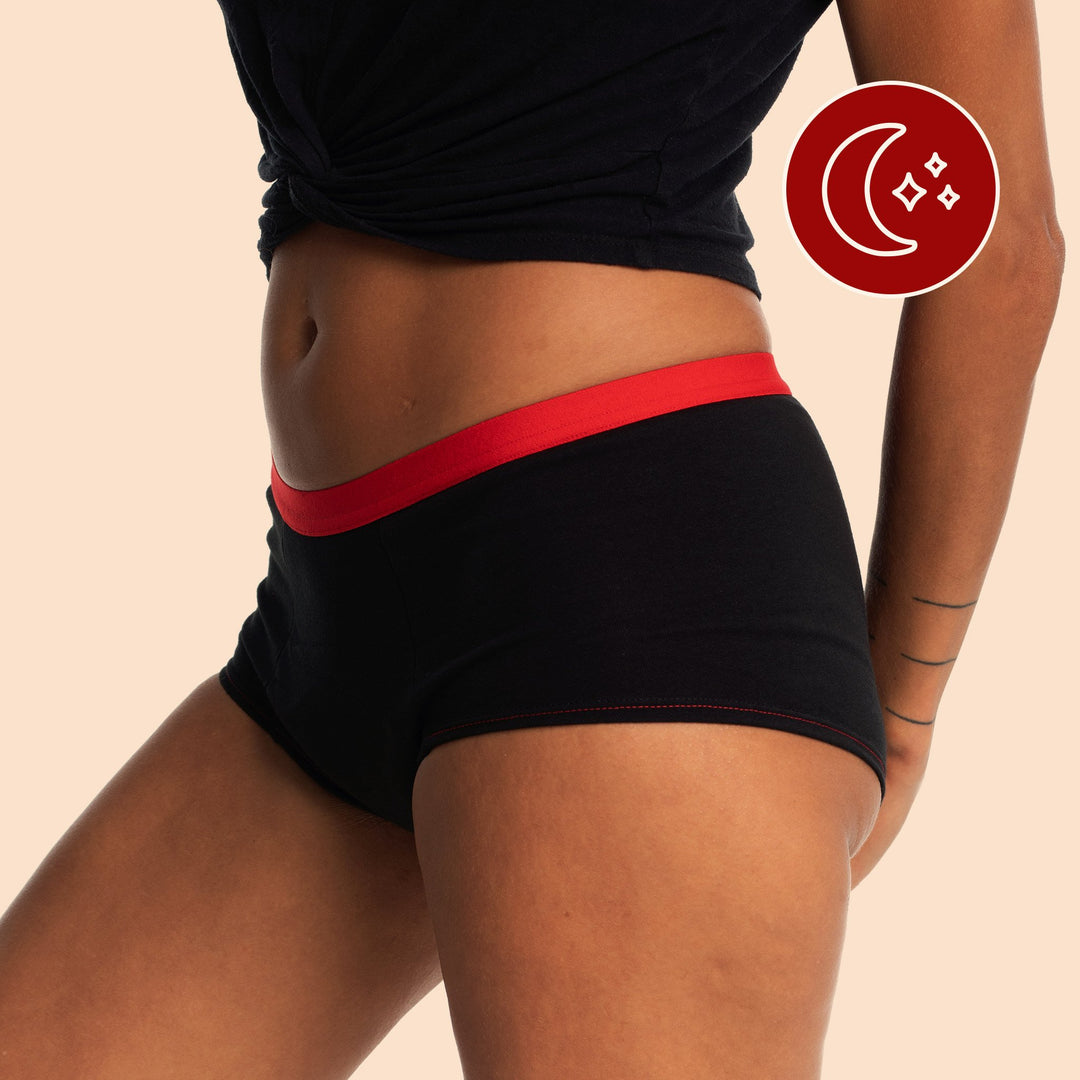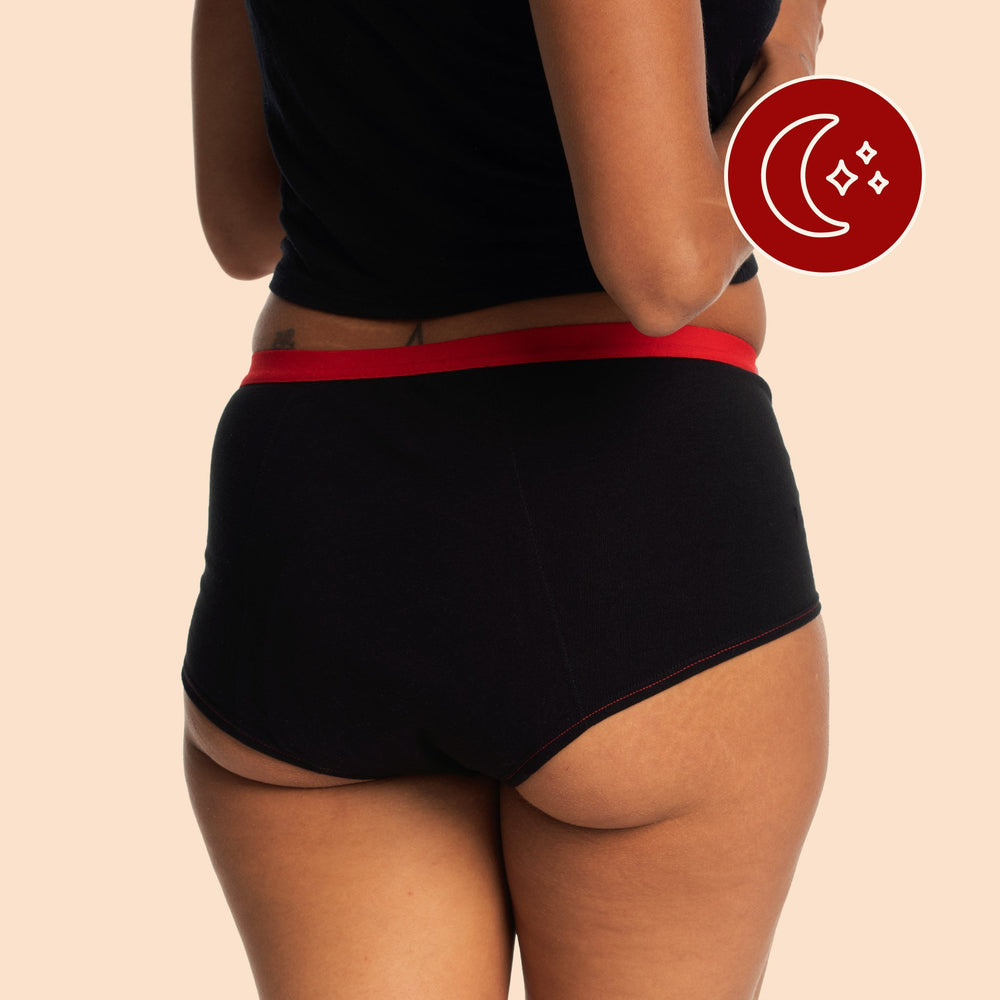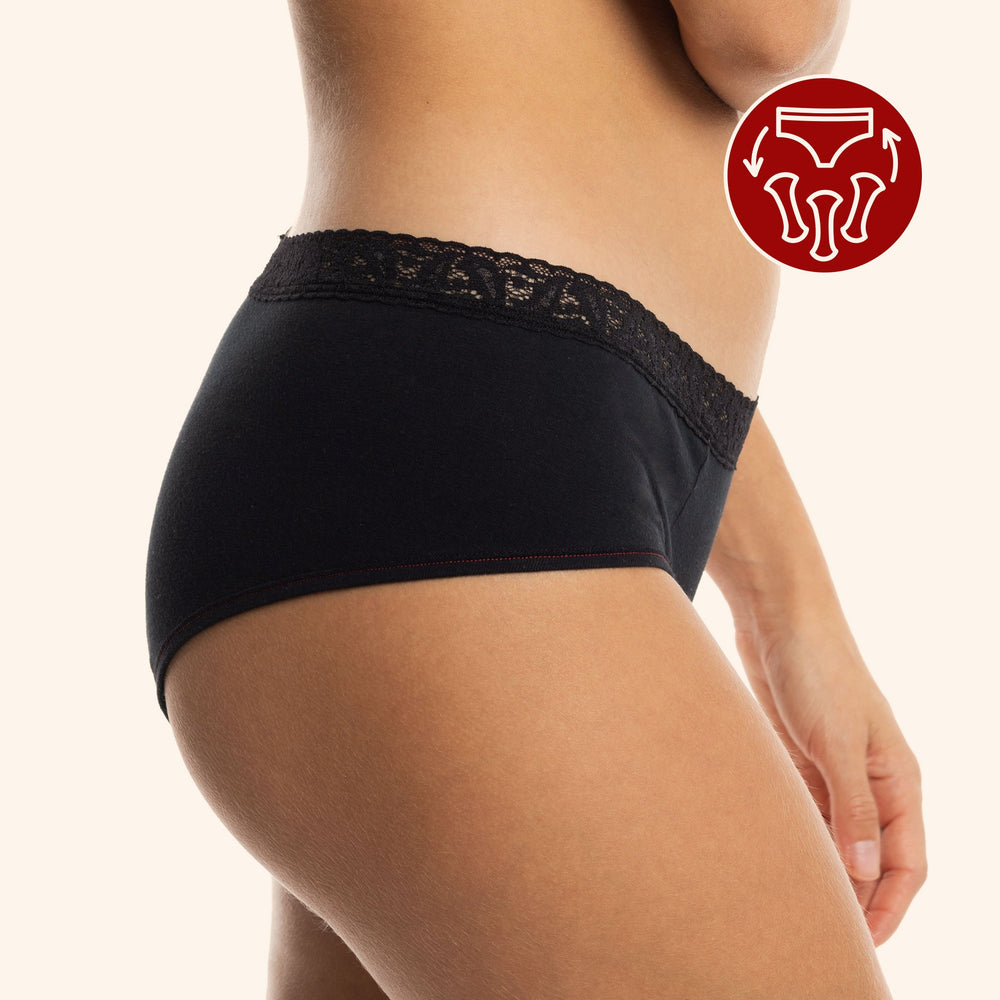
1 in 8 people with a uterus will develop breast cancer in their lifetime. In fact, it's the most frequently diagnosed cancer in the world (WHO, 2021).
We know, these stats are really striking. But rest assured: This article isn't supposed to make you afraid. It's not so much an alarm as it is a spotlight so our community can learn some important health information. The better you're informed, the more likely you are to detect breast cancer early and treat it well.
That's why we invited Marie-Hélène Vaillancourt from the Quebec Breast Cancer Foundation to our last Red Table (our should that be "Pink Table"?). She taught us how to monitor our breasts. We also had the chance to hear from Dr. Gillian Flower, who approaches oncological naturopathy with a gentle touch. Finally, Sophie Reis, a breast cancer survivor, shared her inspiring healing journey and exposed us to a revolutionary tool: the cooling helmet!
💡 This article is a summary of the monthly "Red Table Events",organized by Mme L'Ovary. 💡
The Red Table is a space for educational, safe and inclusive discussion to gather and address topics that are still often taboo. The floor is entirely left to the invited experts, as well as to the community present. These discussions reflect opinions and in no case should they be considered as medical recommendations.
What's breast cancer?
Cancer is the abnormal and uncontrollable growth of cells. It causes tumors to form and organs to malfunction. In the case of breast cancer, the tumor grows in the breast.
Over time, the cancer cells grow, and there's a risk that they'll travell out of the breast to other organs. This is what people refer to as stage 4 breast cancer or metastatic cancer. At this advanced stage, the cancer is incurable, but there's still a lot of hope in terms of life expectancy. That's why it's important to be on the lookout for symptoms. In all cases, you want to detect cancer as soon as possible.
By the way, thanks for reading this article! It's really important to be informed. Knowledge = power.
There's a pretty common misconception out there that breast cancer is easy to treat. But you should know that it's a multifactorial cancer, meaning there's more than one type. Several factors are involved: stage (degree of the cancer's infiltration), grade (the rate at which the cells grow), and receptor (the cells' responses to estrogen, progesterone, or neither). So let's talk about all that to get a better understanding!
Am I at risk?
Everyone's at risk. It's true. Young or old, male or female. In fact, 1% of breast cancer cases occur in males.
Some factors are beyond our control, while others depend on our choices and behaviours, which can increase or decrease the risk.
Factors beyond our control
- Being female: The most common breast cancer responds to estrogen and/or progesterone hormones, which are female hormones.
- Age: People can develop breast cancer at an early age, but statistics suggest the ages 50 to 69 are the most risky.
- Recurrence: Having had breast cancer in the past puts a person at risk of developing it again.
- Genetics: If there's a history of breast cancer in your family, you're at increased risk.
- Mutations: Genetic mutations can also put you at risk.
- Menstruation: If you had you first period before you were 12, you're at increased risk, but don't worry: that's just one of many factors!
- Menopause: Late menopause (after the age of 55) is also a factor.
- Breast density: A high level of fatty tissue in your breasts is another factor, but that's not to be confused with having large or small breasts!
Factors over which we have some control
- Limit alcohol consumption.
- Limit tobacco use.
- Be physically active, which studies show is extremely beneficial!
- Being exposed to ionizing radiation at a young age increases the risk (for example, radiation therapy).
- Hormone replacement therapy (treatment to reduce the severe effects of menopause) increases the risk.
- Having your first late-term pregnancy after 30 years of age or never getting pregnant are also risks. But hey, no pressure to give birth here!
- Breastfeeding decreases the risk.
How do you monitor your breasts?
You've probably already heard of self-examining your breasts. That was the old way of doing it. This precise breast palpation technique is no longer recommended, because it hasn't been shown to increase the chances of screening for breast cancer.
It's true that a mass is often the first symptom, but it's sometimes very small and therefore difficult to detect. Everyone agrees on one point: we have so many bumps in our breasts, finding a tumour is like finding a needle in a haystack (or a defective ball in a ball pen). Plus, all breasts are unique.
All of which means the new method is . . . observation!In other words, you need to become the number one expert on the subject of your own breasts! How can you do that? By exploring the entirety of your breasts, from your collarbone to your armpits and right through to your nipples. A bump is ONE of the symptoms, but there are other signs to look for too:
- How's the texture of your skin? Sometimes, if a person has breast cancer, the texture of their skin can become rougher, like an orange peel.
- Do your nipples retract inward? Is there an abnormal flow?
- Do you see a kind of hollowness, swelling, or redness?
The keywords are: a recent and persistent change over time, one that you're not able to explain. When in doubt, the best thing to do is go see your doctor. In 90 percent of cases, the symptom is benign, but it's still better to get checked out, if only for your peace of mind!
In short, take the time to know your body and how your breasts look and feel when they're healthy. The purpose of monitoring your breasts isn't to find little sores but to get to know them as well as you can. That'll make it way easier for you to detect a change rather than searching in sudden fear.
One way we can get to know our bodies better is by raising our arms, looking in the mirror, and noting how our breasts look throughout our menstrual cycles. You'll notice that some breast pain is normal and recurrent, including increased sensitivity during menstruation.. Plus, you can take advantage of those monitoring sessions by giving your breasts a little love. Mixing careful observation with an infusion of self-love is always beneficial! ♡
The keys to being with a loved one who has cancer
- Listening is the master key. Unfortunately, we can't perfom miracles. The main thing is to take the time to listen to your loved on and validate their needs. You might say, "I can do whatever it is you need. Just let me know." Or you could try, "What would help you or make you happy?"
- Help with tasks while respecting your own limits. Offering to help with daily tasks can be a way of supporting the person, whether that's cleaning, looking after children, buying groceries, or preparing meals, but it's super important not to put too much on your shoulders. You can't take care of someone if you don't take care of yourself.
- Learn about the type of cancer.Learning more about the disease, its symptoms, and its treatments helps you understand what the person is going through and be more attentive to their needs.
- Promote the services of the Quebec Breast Cancer Foundation. Pssst! The foundation offers psychological support for caregivers.
Services offered by the Quebec Breast Cancer Foundation
The foundation's mission is to improve quality of life for people affected by breast cancer (both people with the disease and their loved ones) by offering them a wide range of resources:
- My Active Health: a community of people with breast cancer who encourage each other to be physically active
- Adapted oncological yoga program
- Metastatic breast cancer program
- Financial assistance programs
- Psychological support
- Virtual clinics: support from doctors and nurses online
- Education and awareness
Natural strategies to complement conventional treatments
Chemotherapy, radiation therapy, and breast surgery are absolutely worthwhile treatments in the healing process. Unfortunately, they also have significant impacts on patients' quality of life. This is where natural strategies come into play!
Mme L'Ovary's Dr. Gillian Flower is a naturopath with the Centre for Health Innovation in Ontario, and she's on a mission to help people get through treatment with the most benefits and least side effects as possible. The impacts of chemotherapy (numbness, pain, hormonal changes, hot flashes, etc.) can be softened with plants and a suitable diet. Natural alternatives can also be effective in preventing recurrence following remission.
There are a lot of different natural treatment strategies:
- Change your diet
- Use plant extracts
- Take natural vitamins and supplements
- Manage stress with meditation
- Get acupuncture treatments (before and after chemotherapy)
- Do post-surgery physiotherapy (among other things to prevent lymphedema)
- Etc.
To everyone who's been diagnosed, know that you can have good health and cancer at the same time. One doesn't exclude the other.
One of our precious collaborators, Valérie LeBlanc, went on a journey of naturopathic oncology with Dr. Flower during her healing process. She talked with Érica about the reality of breast cancer in a vulnerable and hopeful conversation.
Having agency in your care journey is a big step toward healing
In the fall of 2020, Sophie Reis was diagnosed with aggressive breast cancer (found fortuitously and without any family history) that completely changed her life. She turned this uncontrollable event into a gift. She transformed her supposedly heavy and sad reality into an infinite source of teachings that she shares on her platform. Cancer as a gift.

When she was diagnosed, Sophie's first reflex was to assemble a tribe of breast cancer survivors so she could educate and inform herself. As a patient, she felt the duty to awaken her conscience and take ownership of information related to her illness.
"Empowering yourself is essential. Everyone can have agency in their healing and throughout their care journey."
One of the most valuable tips she shared with us is not to stay passive in the face of the disease. Be curious and learn about what's happening. You don't need to have all the answers, but it's important to team up with your oncologist and ask a bunch of questions. In a culture where doctors are placed on a pedestal, Sophie believes it's necessary to work with them on an equal footing.
That's why she's built a multidisciplinary team of 13 specialists to take charge of her health. "I became the president of my health, and I built the best board of directors around me!" Naturopath, homeopath, acupuncturist . . . you name it! It's got to be said that Sophie has the soul of an entrepreneur, and it's inspiring to see that her process has borne so much fruit.
The cooling helmet: Keeping your hair despite chemotherapy
Losing your hair is often an emotionally taxing experience for people undergoing chemotherapy. But here's the good news: there's a super-solid solution out there! I know, I know: that's surprising because in Quebec, we hardly ever hear about it!
For almost 30 years, the cooling helmet technique has been used in Europe to protect people's hair follicles. In Canada, it was approved by the Food Inspection Agency in 2015, and two yeara ago, a supplier set up shop in Toronto.
In short, it's an ice cap that you put on during and after chemotherapy. At about -30ºC, expect to visit the North Pole for a few hours! The cold decreases blood flow to the scalp, which also llimits the influx of chemotherapy molecules to that area. The results are pretty amazing!
You have the right to make an informed decision. And to do that, you have to have the right information. So here you go: all the information you need!
To conclude, a cancer diagnosis doesn't have to define us.
You might not think of breast cancer as a gift, but even still, it doesn't have to be a totally sombre experience. It might even go well. Some days will definitely be harder than others, but by getting informed and surrounding yourself with caring people, you'll have more good days than you might think possible.
So to wrap this up, here's a teensy reminder to monitor your breasts and give them a little love while you're at it! Your breasts are closer to your heart than any other organ; they deserve to be taken care of.
Some resources
- Breast Cancer Foundation: Instagram, Facebook, website
- Crisis and Information Line: 1-855-561-ROSE/1-855-561-PINK
- Cancer as a gift: Instagram, Facebook, website
- Centre for Health Innovation
- Keep your hair: Quebec non-profit foundation
- Parole-Onco
- (Book) Radical Remission by Kelly A. Turner
- BB JetLag: a reference for travelling parents




